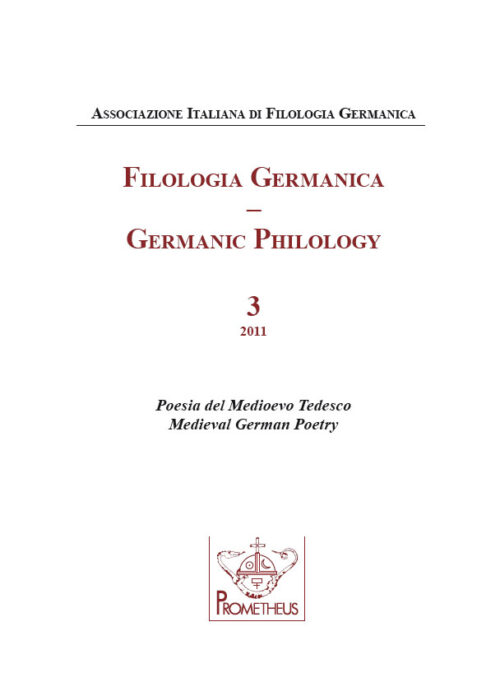TABLE OF CONTENTS / CONTENTS
MASSIMILIANO BAMPI
Ein heiden was der erste man / den got machen began: Der narrative Aufbau des Toleranz-Begriffs im Willehalm Wolframs von Eschenbach (pp. 1-22)
MARIA GRAZIA CAMMAROTA
Religious otherness in Die Heidin (pp. 23-46)
MICHAEL DALLAPIAZZA / ALESSANDRA MOLINARI
Wolframs Parzival und das Problem des festen Textes: Die Varianten des Bogengleichnisses (pp. 47-70)
MARIA RITA DIGILIO
On some editorial variants of the Florentine witness of theIwein by Hartmann von Aue (pp. 71-100)
CLAUDIA HÄNDL
Zum Marner als Minnesänger (pp. 101-133)
CHRISTOPH HUBER
Liebestod im Minnesang Heinrichs von Morungen (pp. 135-159)
STEPHAN MÜLLER
Das Gedächtnis des Schreibers B4/E. Ein Experiment zum Eingangsteil des Nibelungenliedes (pp. 162-177)
ULRICH MÜLLER
Oswald von Wolkenstein, Lied Kl 18: Liebe als Passion – Eine Symptomatik (pp. 179-199)
TERESA PROTO
Oral metrics and written tradition: the example of the wechsell neidhartians (pp. 201-223)
MARIA GRACE SAIBENE
Hermann of Thuringia, politician and patron, in the light of courtly poetry (pp. 225-256)
LIST OF AUTHORS / LIST OF AUTHORS (pp. 257-259)


